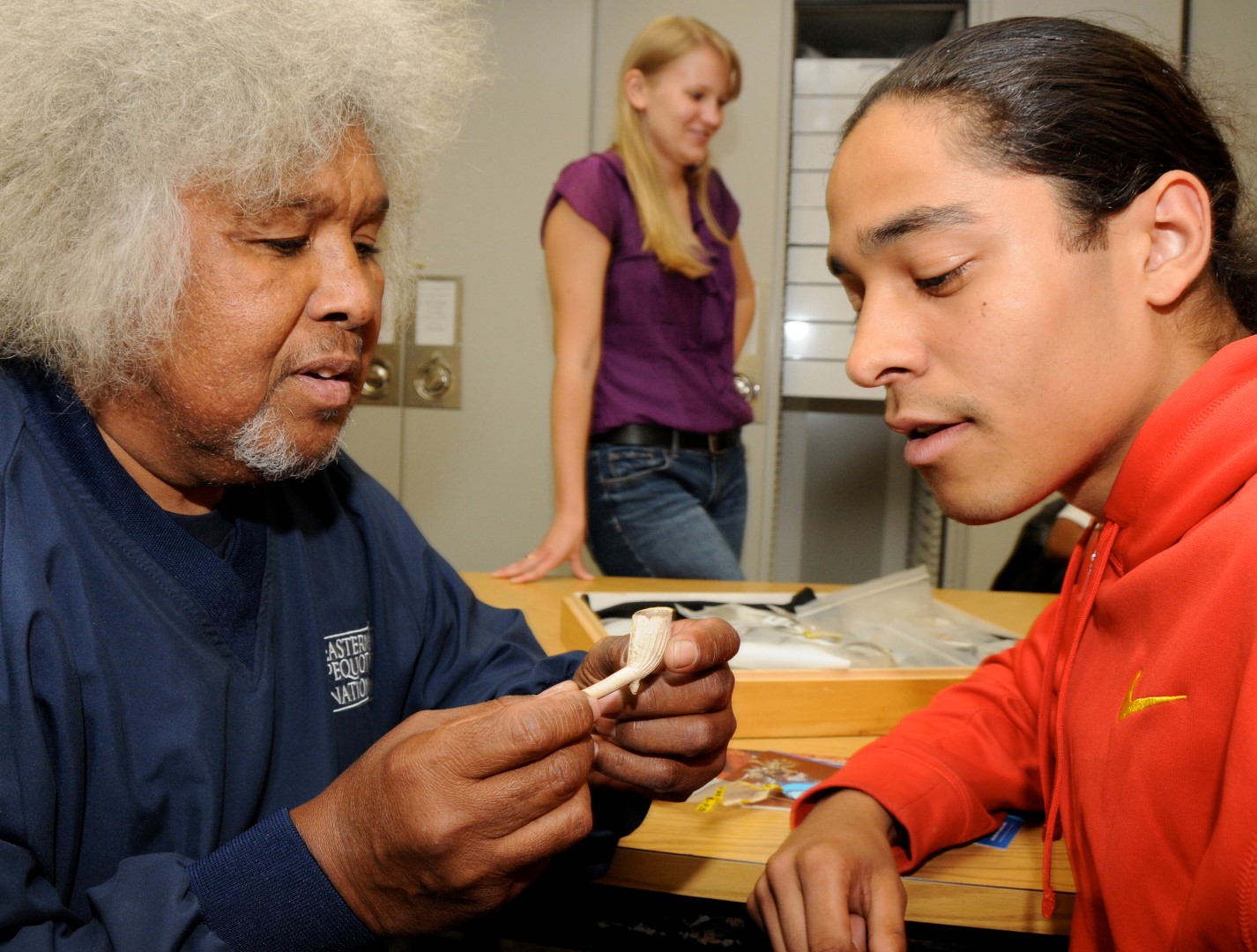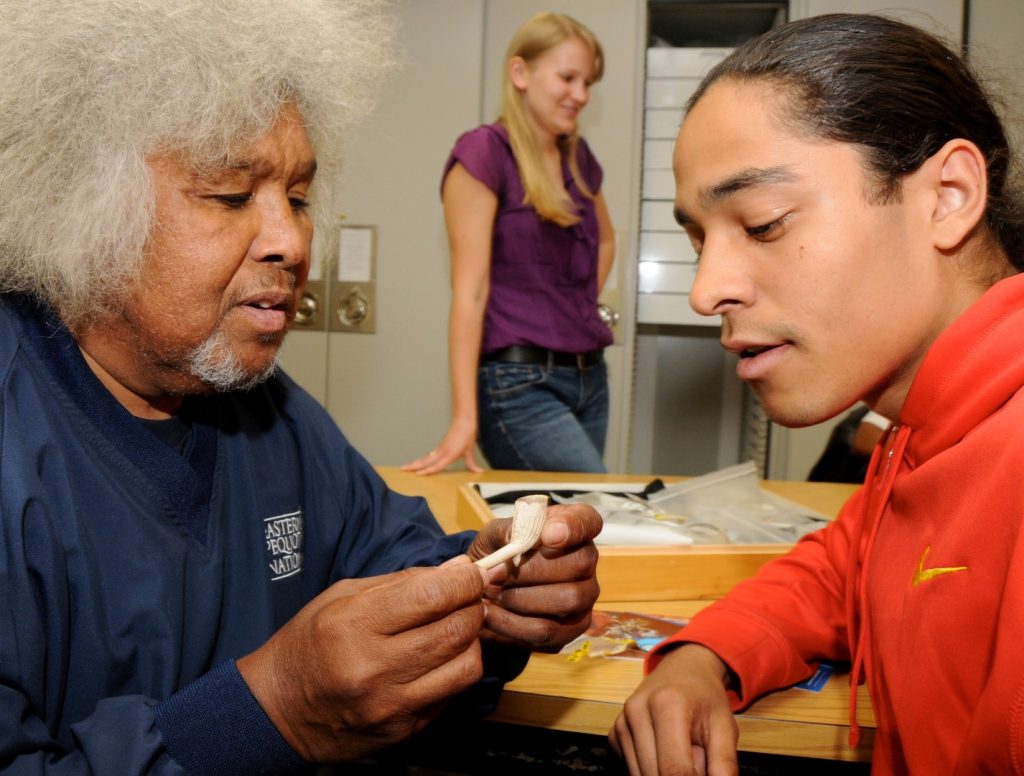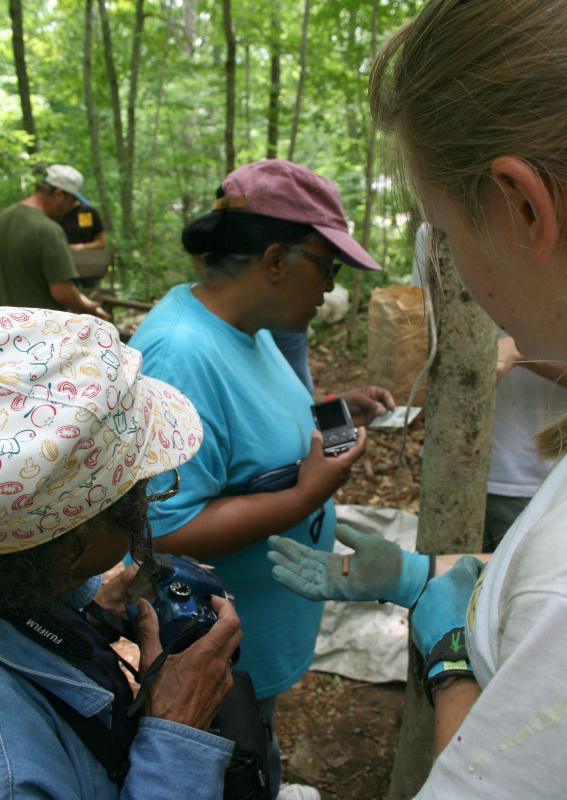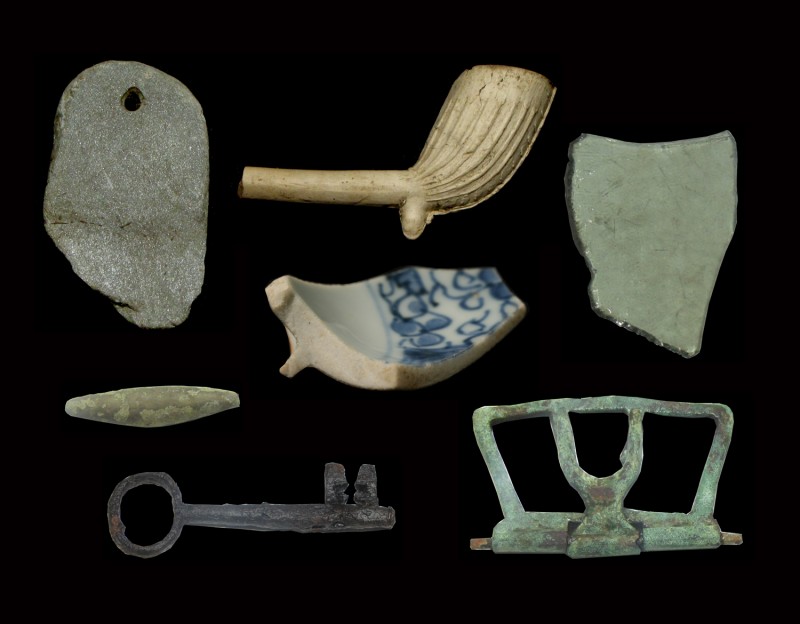Fieldwork
This listing expired on August 1, 2022. Please contact stephen.silliman@umb.edu for any updated information.





Location: North Stonington, CT, US
Season: June 26, 2022 to July 29, 2022
Session Dates: June 26 - July 29, 2022
Application Deadline: April 4, 2022
Deadline Type: Rolling
Website: https://youtu.be/CsJ2znR-Wq8.
Program Type:
Field School
RPA Certified:
No
Affiliation:
University of Massachusetts, Boston and Eastern Pequot Tribal Nation
Project Director:
Dr. Stephen Silliman, University of Massachusetts Boston
Project Description:
Join more than 120 students who have experienced this fulfilling educational, cultural, and life-changing course. Now, after a pandemic with few student field opportunities … It’s YOUR turn!! The Eastern Pequot Archaeological Field School has returned after four years of inactivity due to administrative obligations and the COVID-19 pandemic. The Department of Anthropology at the University of Massachusetts, Boston, is offering a five-week, six-credit archaeological field course on the Eastern Pequot reservation, located in southeastern Connecticut. In close collaboration with the Eastern Pequot Tribal Nation, the university field school will undertake its twelfth field season of intensive study of tribal lands since 2003 to identify and document archaeological sites dating to the 17th, 18th, and 19th centuries in an effort to study the persistence and survivance of Indigenous people in colonial New England. The Eastern Pequot community has occupied this historic reservation since 1683. Read more about results of years of work with this community.
Field school students will receive training in techniques such as subsurface surveying, excavation, artifact processing, material culture identification, and archival research. These will prepare students for subsequent archaeological work in academic, cultural resource management, and public archaeology contexts. In addition, students will be engaged directly with issues of decolonizing and anti-racist practice, critical heritage, cultural representation, and community work in contemporary archaeology. To complement the field archaeology, the field school will also work on developing and augmenting heritage products that meet Indigenous community needs. Through this well-established educational and community-oriented program, students will have the unique opportunity to participate in collaborative and engaged archaeology and heritage work alongside Native American leaders, elders, adults, and youth in a joint effort to recover aspects of Pequot history in southern New England and to keep charting the future for a more inclusive, decolonized, and socially responsible anthropology.
The course fee for the undergraduate and graduate sections covers six credit hours, instruction, field activities, visits to museums and nearby projects, housing, food, and travel between the field house and reservation. The fee does NOT cover basic student supplies, required health insurance, or transportation to/from the field school.
To request an application, please contact the Project Director as soon as possible or download the application here. The application deadline is April 4, 2022, but early application is recommended since spaces are competitive and tend to fill quickly. Application review will begin before the deadline (likely around March 15) and will continue weekly until slots are filled. You may contact the Project Director after the deadline to see if any spaces remain.
Period(s) of Occupation: Contact / Historic / Colonial
Notes:
Collaborative, community-engaged, Indigenous archaeology and heritage project with Native American community in New England, focused on (1) Indigenous persistence and survivance in the context of colonialism and reservation life in the 17th through 19th centuries, (2) the ethics, politics, and social justice responsibility of archaeology and colonial studies in Native North America, (3) the involvement of Indigenous community members in all aspects of archaeological fieldwork based on a deep collaboration of almost 20 years, and (4) the production of innovative heritage products with community involvement.
Project Size: 1-24 participants
Minimum Length of Stay for Volunteers: Full five weeks
Minimum Age: 18
Experience Required: Archaeology coursework preferred, but not necessary. Willingness to engage in community-engaged archaeology and indigenous political issues highly desirable.
Room and Board Arrangements:
The field school crew will share a residential house at Connecticut College in New London, approximately 12 miles from the project area. The house contains apartment units with 13 bedrooms and 5 bedrooms, kitchens, and living rooms. Most, if not all, students will have their own bedroom. Dinner is prepared communally. Field school will be in session for all days during the time span noted with a typical schedule of five days per week in session and two days per week off (during which times students may return home, if local, or explore the area). The course will include some occasional evening activities. The college and nearby area offer many amenities and entertainment options. See application for more details. Cost Included in field school fees.
**SPECIAL NOTE** Anyone chosen to participate must provide proof of being fully vaccinated for COVID-19 prior to May 1, 2022, and the university may require that this include a booster shot. Depending on the public health requirements in place at the time, the field school staff and students will follow rules set by the University of Massachusetts Boston (as the course host), Connecticut College (as the lodging host), Connecticut state or municipal governing bodies (as the local context), and the Eastern Pequot Tribal Nation (as the community). These requirements are all in flux as public health officials and decision-makers monitor the pandemic, and you will be advised of any restrictions or rules as they become available. As we have all learned in the last two years, patience and flexibility are key. However, there is reason to hope for something much more "normal" by Summer 2022.
Academic Credit:
6 undergraduate or graduate credits offered by the University of Massachusetts Boston at $2,735 (undergraduate) and $3,550 (graduate). The costs are the same for in-state, out-of-state, or international students. The goal is to offer an affordable (as possible!) undergraduate field school experience in the larger environment of high-cost field opportunities. The University of Massachusetts Boston is a public institution with a social justice mission and the most diverse student body in all of New England, and its tuition rates reflect those characteristics and commitments.
Professor Stephen Silliman
Department of Anthropology, University of Massachusetts, Boston, 100 Morrissey Blvd
Boston
MA
02125-3393
United States
Phone: 617-287-6854
Fax: 617-287-6857
The AIA is North America's largest and oldest nonprofit organization dedicated to archaeology. The Institute advances awareness, education, fieldwork, preservation, publication, and research of archaeological sites and cultural heritage throughout the world. Your contribution makes a difference.